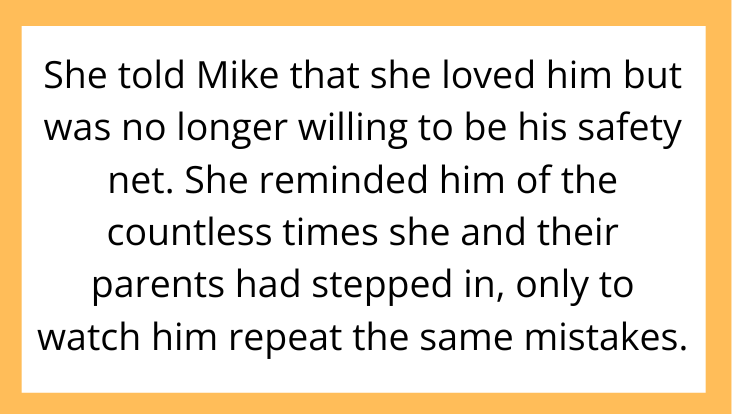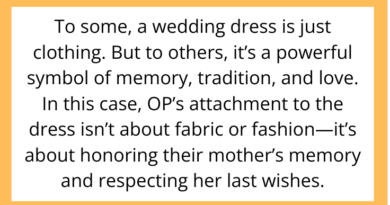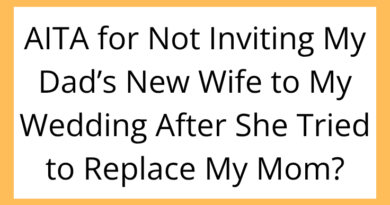AITAH for Refusing to Help My Brother Pay Off His Massive Debt?
When family members fall into financial trouble, it’s natural to want to help—but what happens when their problems are the result of years of reckless choices? In this AITAH scenario, one sibling reaches a breaking point after being asked to bail out a brother who, in her words, “has never taken responsibility for anything.”
Let’s dig into the story and decide: Is she heartless, or finally standing up for herself?
The Situation: A Lifetime of Bad Decisions

The original poster (let’s call her Emma) shared her story on r/AITAH. Emma, 34, has worked hard to build a stable life. She has a steady job, owns her home, and has carefully managed her finances.
Her younger brother, Mike, 31, is the opposite. For more than a decade, he’s struggled with spending beyond his means—new cars, expensive vacations, shopping sprees—funded by credit cards and personal loans. Their parents have bailed him out multiple times, and Emma has occasionally chipped in, believing that each time would finally be “the wake-up call.”
Recently, Mike’s debt reached a critical point. He owed more than $80,000 in credit cards and personal loans. Creditors were threatening legal action.
He called Emma in a panic and asked if she could take out a personal loan to help cover the balance. He promised to repay her in installments “as soon as he gets back on his feet.”
Drawing the Line: Emma Finally Says No

This time, Emma declined.
She told Mike that she loved him but was no longer willing to be his safety net. She reminded him of the countless times she and their parents had stepped in, only to watch him repeat the same mistakes.
Mike was furious. He accused Emma of abandoning her own family and caring more about “hoarding money” than helping her brother in a crisis. He called her selfish and heartless. Their parents were sympathetic to Mike but didn’t pressure Emma directly.
Feeling guilty, Emma turned to Reddit for perspective: Was she the villain for refusing to help her brother one more time?
The Case Against Emma: Family Loyalty and Support
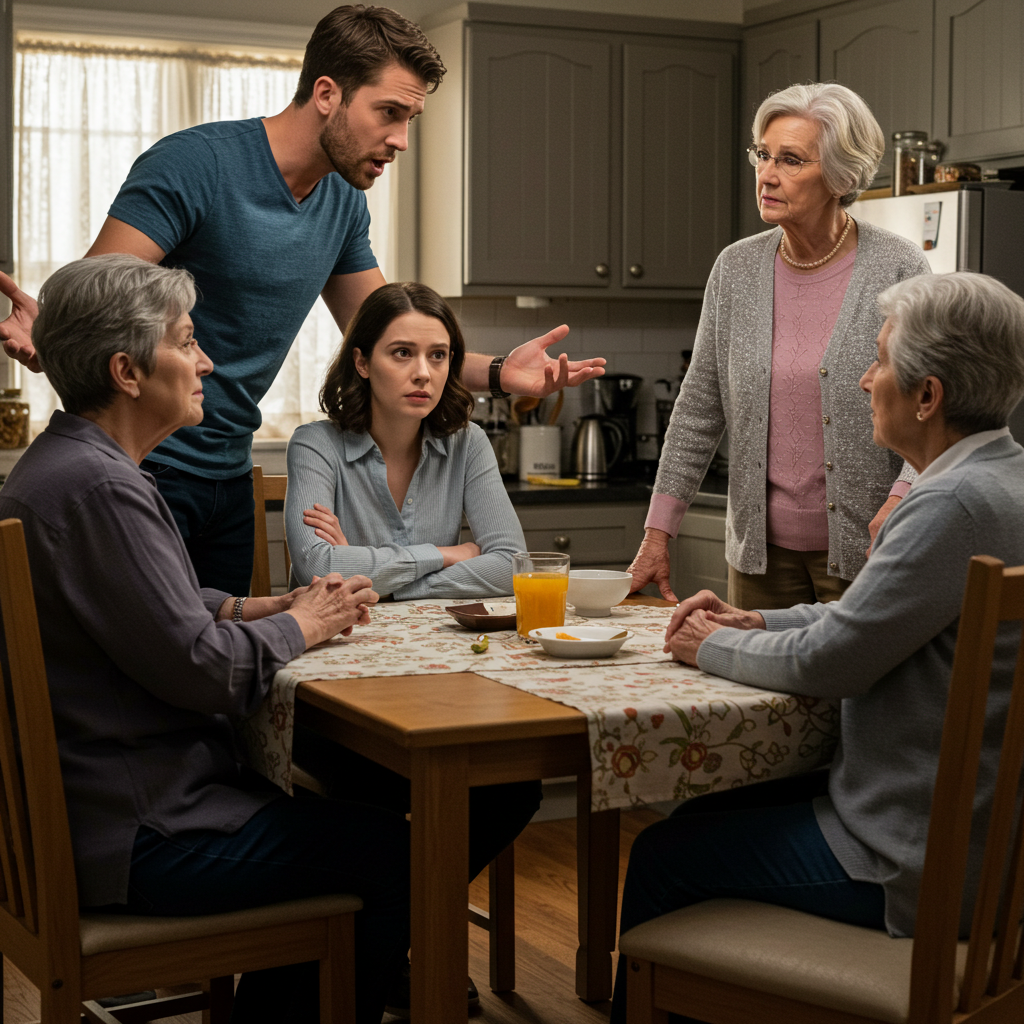
Some commenters could see why Mike felt betrayed.
From his perspective, Emma had the means to help. She wasn’t struggling financially, and her refusal seemed cold and final.
Many families believe in unconditional support. If someone falls, you help them back up—no questions asked. To Mike, Emma’s “no” might have felt like rejection not only of his request, but of him as a brother.
And in fairness, financial hardship can be overwhelming. Desperation often leads people to lean on the only ones they trust: family.
The Case for Emma: Boundaries Are Not Betrayal

But most Redditors sided firmly with Emma.
Helping once or twice can be an act of compassion. But repeatedly bailing someone out—especially when they make no lasting changes—crosses into enabling.
Emma wasn’t refusing because she didn’t care. She was refusing because she did care, and because she knew her help wouldn’t solve the real problem.
As one commenter wrote:
“This isn’t about debt. It’s about accountability. If he doesn’t learn to fix it himself, he’ll be right back here in six months.”
Emma also had to protect her own financial security. Taking out a loan would put her credit and stability at risk—something Mike didn’t seem to consider.
When Saying No Is the Healthiest Choice
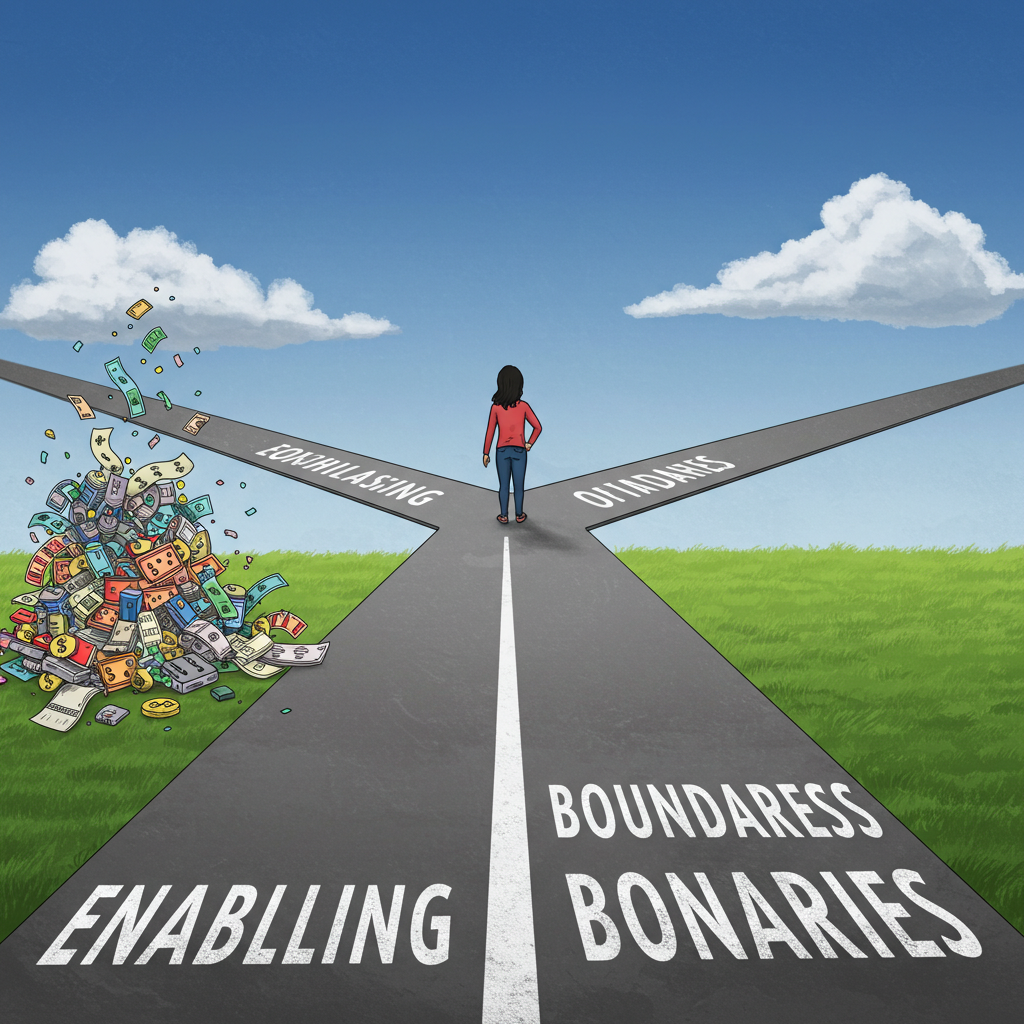
Setting a boundary with someone you love is excruciating. But sometimes, it’s the only way to break the cycle.
Emma had already been generous. She had already offered chances. And she was still willing to offer support in other ways—helping Mike find a financial counselor, assisting with a repayment plan, or simply being there emotionally.
But she knew one more bailout wouldn’t change anything.
That doesn’t make her cruel. It makes her realistic.
The Bigger Lesson: Boundaries and Self-Preservation
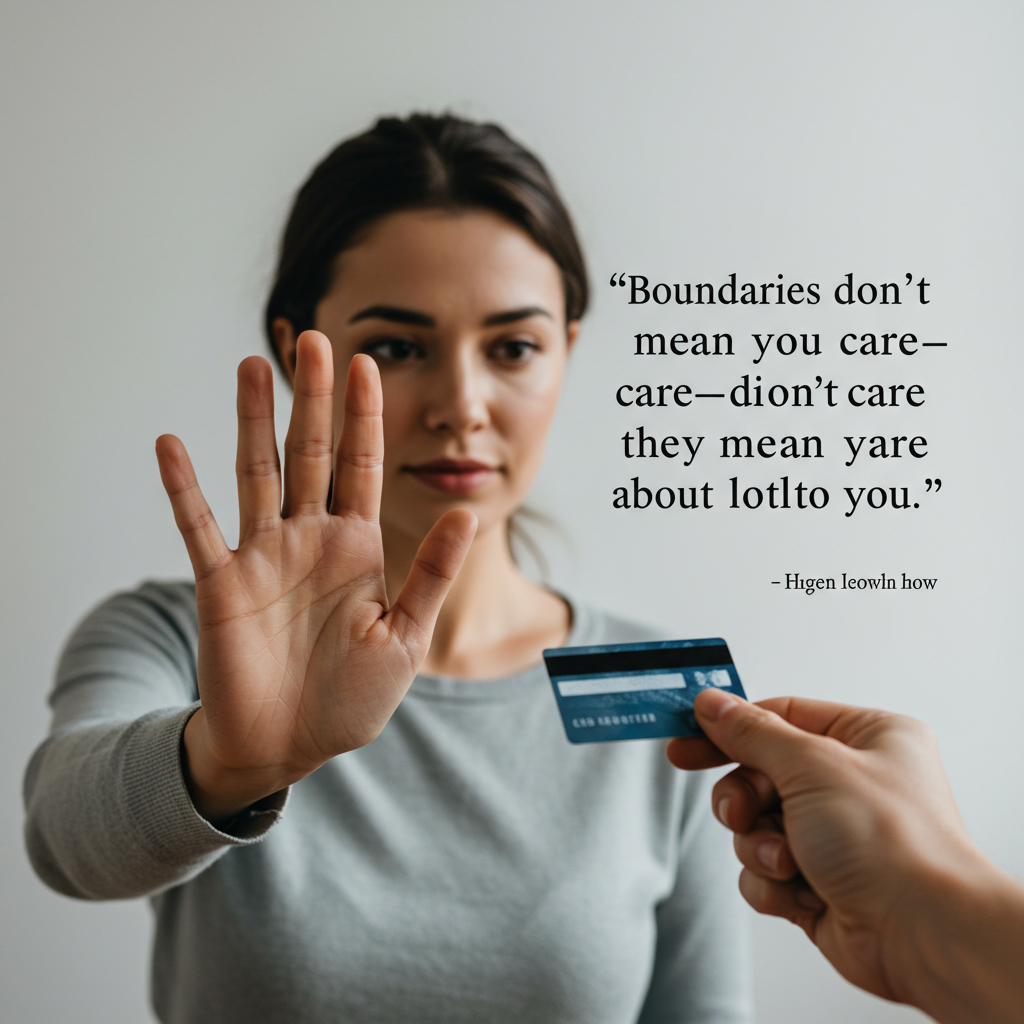
This AITAH scenario underscores an uncomfortable truth:
You are not obligated to set yourself on fire to keep someone else warm.
Family loyalty has limits—especially when it comes to enabling self-destructive behavior.
Emma’s story is a powerful example of how saying no can be the most caring thing you do. It gives the other person the space—and the necessity—to finally take responsibility.
